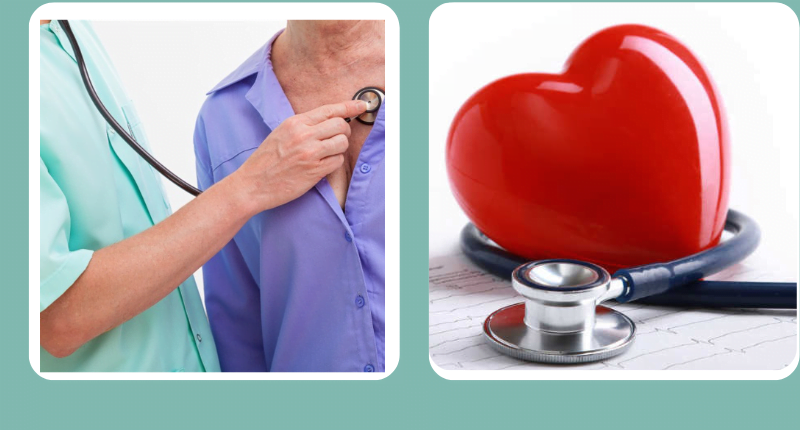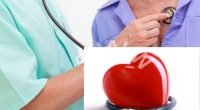The common question these days is “How To Prevent Heart Attack From Happening” – can it be avoided? The answer is YES! (1)
A heart attack, also called a myocardial infarction (MI), is a debilitating and often deadly event caused by the interruption of blood flow to the heart muscle.
The most common cause of this is atherosclerosis, or the buildup of plaque in the arteries.
When plaque ruptures, it forms a blood clot that can block the flow of blood to the heart. This can lead to chest pain, shortness of breath, and an irregular heartbeat.
If not treated quickly, a heart attack can lead to death. That being discussed, let’s look at the risk before “10 Essential Steps To Avoid Heart Attacks And Stay Healthy For Life ”
Risk Factors for Heart Attacks
There are many risk factors for heart attacks, some of which are controllable and others that are not. Controllable risk factors include high blood pressure, high cholesterol, smoking, diabetes, and being overweight. These are all modifiable risk factors that can be changed through lifestyle choices and/or medications. Non-controllable risk factors include age, gender, family history, and ethnicity.
Age is the most significant risk factor for heart disease. The older you are, the greater your chance of developing heart disease. Gender also plays a role, as men are more likely to develop heart disease than women. Family history is another important risk factor, as those with a family history of heart disease are more likely to develop the condition themselves. Finally, certain ethnicities are at higher risk for developing heart disease, including African Americans, Hispanics, and Native Americans.
While you can’t change some of your risk factors for heart disease, there are things you can do to lower your risk. Maintaining a healthy weight, eating a healthy diet, exercising regularly, not smoking, and managing stress levels can all help to reduce your risk of developing heart disease. If you have any of the controllable risk factors mentioned above, it’s especially important to take steps to control them.
10 Essential Steps to Prevent Heart Attacks
Get Regular Checkups
It is important to get regular checkups with your doctor, especially as you get older. This will help to detect any potential health problems early on. Your doctor can also advise you on how to keep your heart healthy and reduce your risk of a heart attack.
Exercise Regularly
Exercise is one of the most important things you can do for your heart health. It helps to keep your heart strong and pumps blood more efficiently throughout your body. Just 30 minutes of moderate exercise each day can make a big difference in your heart health. And, it’s not just about going to the gym. You can get moderate exercise by doing activities like walking, biking, gardening, or even housework.
Quit Smoking
Quitting smoking is one of the most important steps you can take to protect your heart health. Smoking is a major risk factor for heart disease, and quitting smoking can reduce your risk of having a heart attack. If you smoke, quitting is the best thing you can do for your heart health.
There are many ways to quit smoking, and there is no one right way to do it. The most important thing is to find a method that works for you and stick with it. There are many resources available to help you quit smoking, including counseling, support groups, and medications. Your doctor can help you find the resources you need to quit smoking successfully.
Eat Healthy Foods
A heart attack occurs when the flow of oxygen-rich blood to a section of heart muscle is blocked. A heart attack can be fatal if not treated immediately. The good news is, there are steps you can take to reduce your risk of having a heart attack.
One of the best ways to prevent a heart attack is to eat healthy foods. Eating a diet that is low in saturated and trans fats, and high in fiber can help keep your cholesterol levels in check. In addition, eating plenty of fruits and vegetables can help keep your blood pressure under control.
Another way to reduce your risk of a heart attack is to get regular exercise. Exercise helps improve the function of your heart and blood vessels, and also helps to control your weight. If you smoke cigarettes, quitting is one of the best things you can do for your heart health. Smoking greatly increases your risk of having a heart attack.
If you have any risk factors for heart disease, such as high cholesterol or blood pressure, it is important to talk to your doctor about ways to reduce your risk. Taking medication as prescribed, making lifestyle changes, and getting regular checkups can help keep you healthy and prevent a heart attack.
Manage Your Stress Levels
It’s no secret that chronic stress can take a toll on your health, but did you know that it can also increase your risk of heart disease? That’s why it’s so important to find ways to manage your stress levels and keep them under control.
There are a variety of different techniques you can use to help reduce your stress, such as meditation, deep breathing exercises, and yoga. If you’re not sure where to start, there are plenty of resources available online or through your local library.
Regularly Monitor Blood Pressure and Blood Sugar Levels
If you have diabetes, high blood pressure, or any other condition that puts you at risk for heart disease, it’s important to regularly monitor your blood pressure and blood sugar levels. Doing so can help you catch problems early and prevent them from getting worse.
Write down your numbers or keep them in a log so you can track changes over time. This will help you and your doctor spot trends and make necessary changes to your treatment plan.
If you notice a sudden change in your numbers, don’t wait to see your doctor. Something might be wrong and it’s best to get checked out as soon as possible.
Limit Alcohol Intake
When it comes to heart health, moderation is key. That means limiting your alcohol intake to no more than two drinks per day for men and one drink per day for women. Drinking more than that puts you at risk for high blood pressure, heart failure, and stroke.
If you already have heart disease, limiting your alcohol intake is even more important. Too much alcohol can cause arrhythmias (irregular heartbeats), which can be deadly. It can also make your blood pressure and cholesterol levels worse.
So if you want to avoid a heart attack and stay healthy for life, limit your alcohol intake to no more than two drinks per day for men and one drink per day for women. Your heart will thank you!
Take Supplements as Recommended by Your Doctor
Most people are not getting the recommended daily amounts of essential nutrients from their diet alone. This is where supplements come in handy. However, it’s important to check with your doctor before starting any supplement regimen, as some can interact with medications you may be taking or have other contraindications.
Some essential nutrients for heart health include omega-3 fatty acids, CoQ10, magnesium, and vitamin D. Omega-3 fatty acids help reduce inflammation throughout the body and support a healthy lipid profile by helping to lower bad cholesterol and triglyceride levels while raising good cholesterol levels. CoQ10 is an important antioxidant that helps protect cells from damage and supports energy production in the mitochondria. It also helps reduce inflammation. Magnesium is involved in over 300 biochemical reactions in the body and is critical for heart health, as it helps to regulate blood pressure and supports healthy blood sugar levels. Vitamin D is important for calcium absorption and bone health, but it also has been shown to reduce the risk of cardiovascular disease.
Talk To Your Doctor
If you think you may be at risk for a heart attack, talk to your doctor. They can help you understand your risks and make a plan to reduce your chances of having one.
There are many things that can put you at risk for a heart attack, including high blood pressure, high cholesterol, diabetes, and smoking. Your doctor can help you understand your risks and what you can do to reduce them. They may also recommend lifestyle changes, such as eating a healthy diet and getting more exercise.
If you are already experiencing symptoms of a heart attack, such as chest pain or shortness of breath, call 911 immediately. Getting prompt treatment can save your life.
Also read | 12 Longan Fruit Side Effects You Should Be Aware Of Before Eating It









